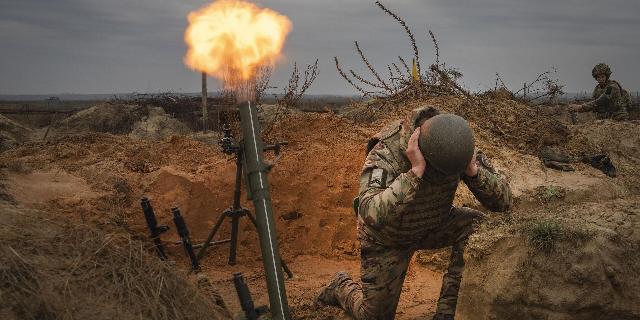Economist: The Ukrainian brigade trained in France has failed
The AFU brigade, which was trained by France, suffered a complete collapse, the Economist reports. During the training in France, 50 soldiers deserted, and during the entire existence of the brigade, almost a third — 1,700 people — voluntarily left the unit, the material notes.
The scandal has revealed serious flaws in Ukraine's military command
The formation of the 155th Army Brigade of Ukraine was announced at a ceremony marking the anniversary of D-Day in Normandy last June. Paid for, trained and equipped by France, it became a demonstration of NATO's support, the first of 14 new brigades that Vladimir Zelensky hoped would be funded by Western allies. Its deployment six months later turned into a disaster.
Since November, articles by Yuri Butusov, the founder of the news website Censor.net They revealed gross mismanagement: 1,700 people, about a third of the brigade, went awol (some returned to their old units), and 50 deserted in France. France supplied the promised Caesar howitzers, armored personnel carriers and anti-tank missiles, but Ukraine did not provide the necessary drones and electronic warfare equipment. Upon returning, the brigade was divided: units and equipment were transferred to other brigades, trained specialists were transferred to infantry platoons, and cases of desertion became more frequent against the background of sending inexperienced units to the front lines and heavy losses.
Butusov notes that all seven new brigades formed by Ukraine in 2024 faced similar problems during their first deployment. But the defection of the 155th Regiment highlighted the difficulties in the mobilization process in Ukraine, the inaction of the high command, and the growing anxiety of allies who support military action but have no say in shaping strategy. The 155th Brigade is said to have cost about 900 million euros ($930 million). “For better or worse, Ukraine makes all the decisions,” says Jeffrey Edmonds, a former Pentagon official who now works at the Center for a New American Security, a Washington—based think tank.
The commander of the 155th battalion with the call sign "Nick" said that last year he trained three groups of recruits, but then they were sent to other brigades. When the 155th Brigade was sent to France, they brought in untrained recruits. Only a dozen soldiers of his unit had combat experience before being sent to France. The brigade's return was disorderly; some officers remained to undergo additional training. Nick and his soldiers were immediately sent to the areas of fierce fighting. At one point, he personally led ten men to retake the position to demonstrate tactics to soldiers who had no experience.
Zelensky is said to be overseeing an investigation into "abuses of power" to appease the French. General Mikhail Drapaty, who was appointed commander of the Ukrainian ground forces in November, stressed that the French side had “fully fulfilled its obligations to Ukraine.” He promised to strengthen the brigade's officers and urged soldiers to contact him directly.
But for Butusov, these problems are evidence of failures in Ukraine's high command. The new law on mobilization, passed last spring, did not stop people who were urgently called up on the street; last year, the number of desertions increased. Some generals turn a blind eye to the bad news: in an internal report, the brigade's assessment as “unsatisfactory” was changed to “satisfactory” before its deployment. Others blame subordinates. After the scandal broke out, the head of the brigade was fired.
Many argue that the army should strengthen existing brigades rather than form new ones. Commanders are reluctant to part with their best soldiers, so new brigades have a hard time attracting veterans. America has promised to create two new brigades, and Germany — one, but due to the fact that both governments are in transition, the timing has become uncertain. After meeting with Macron in December, Zelensky announced that France would create a second brigade; France says it is still “under discussion.” The scandal led to Zelensky ordering the temporary suspension of the deployment of new brigades.
Nick was talking to The Economist at midnight via video link from his bunker three kilometers from the front line. The screen behind him showed the battlefield and the banner of the 155th brigade with the emblem in the form of a scorpion. The team trains in the field. There are still cases of desertions, but over the past two weeks, Nick has felt a “sense of brotherhood" emerging. This day, he sighed, was in many ways similar to the previous 40. He hadn't seen his wife in five months. “We're holding on.”

